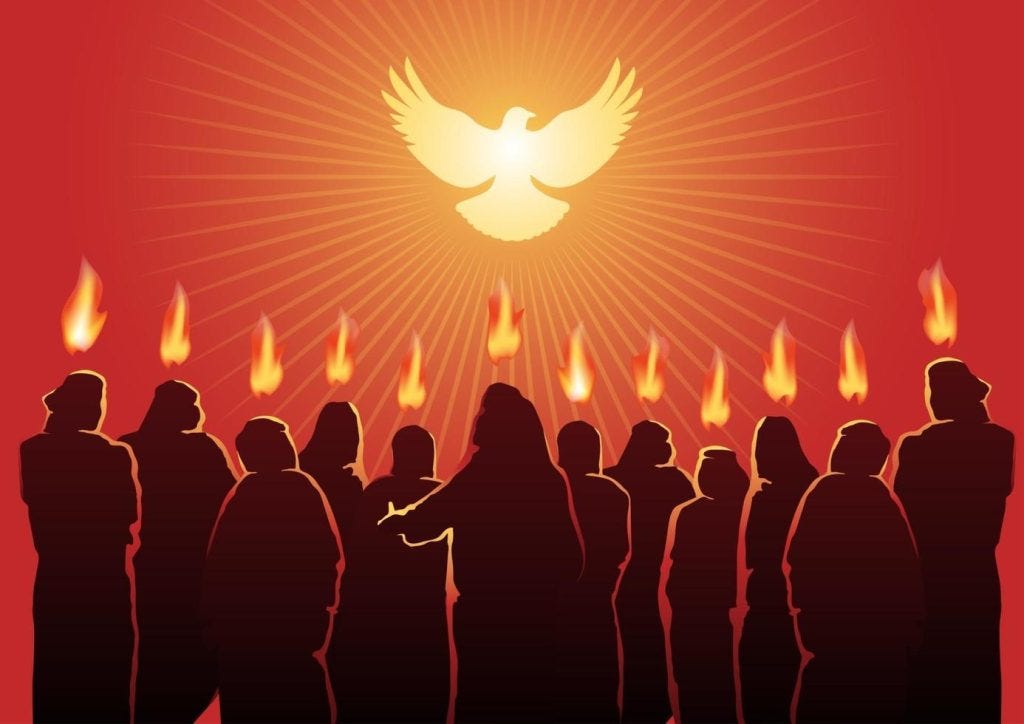This Sunday, the lectionary invites us to ponder Luke 12:49-56. The English Standard Version supplies verses 49-53 with the heading “Not Peace, but Division,” and the heading “Interpreting the Time,” for verses 54-56.
Harmony is the condition of being at peace. Thinking about harmony helps us understand what the passage tells us Jesus said.
Harmony is the difference between the noisy time when members of an orchestra tune their instruments, and the beautiful time when they perform a composition.
Harmonizing is what we do with information from different sources. We put the information “side-by-side,” and we try to get a more complete picture of what really happened. For example, we compare accounts of the resurrection of Jesus given by Matthew, Mark, Luke, and John.
Harmony means living without conflicts and quarrels.
Harmony is something we rarely witness. Every day, we speak about disharmony in our homes, workplaces, churches, countries.
That’s why our life goal is to find places, roads, practices, to live in harmony with one another, with nature, with the cosmos.
Harmony can only be achieved by agreeing what standards we will comply with, and whom we will obey.
That’s why, during a performance, every member of an orchestra must accept the music score as the standard, and the conductor as the “boss.”
That’s why a stable and prosperous society is one where there’s no rubbish on the streets, where no one gets sick because of pollution, where everyone obeys traffic lights, where lawbreakers are punished.
If any politician or religious leader says, “I’ve come not to produce peace, but to produce division,” the law will arrest, prosecute and punish him.
That’s what many of us hope will happen to Akmal, the Umno Youth Leader who seems to wake up every day wondering how he can increase disharmony in our society.
That’s also why we are shocked that Jesus said the same thing. For every Bible in the world contains our text for today, which at verse 51, says:
“Do you think that I have come to give peace on earth? No, I tell you, but rather division.”
Those who remember Christmas carols will be especially shocked. Because in many carols, we sing words like “peace on earth, mercy mild.”
We forget that most of the Christmas texts wrap peace within conflict.
Take for example Luke 1:79. In it, Zechariah, the father of John Baptist, says that Jesus would:
“give light to those who sit in darkness and in the shadow of death, to guide our feet into the way of peace.”
Another example is a song some angels sang to celebrate Jesus’ birth. Luke 2:14 tells us they sang:
“Glory to God in the highest and on earth peace among those with whom he is pleased!”
Notice that these two “Christmas texts,” don’t just say God gives peace.
What they say is that God, through Jesus, gives light to guide us into peace, and he gives it abundantly to those with whom he’s pleased.
To understand what Jesus says about peace and division, we must read today’s text together with the other texts I’ve quoted, and together with his saying, within the same “sermon,” that they must “interpret the time.”
We must harmonize the different texts.
Today’s text tells us that Jesus said he was in distress, while travelling to Jerusalem, to be “baptized.”
He spoke in a nation under military occupation. A nation filled with spies. So, he spoke in code. What he meant was that soon, in Jerusalem, he’d be mocked, beaten, crucified.
And by “interpret the time” he meant his listeners should read what would happen to him as cosmic events which predict changes in the world, just like they read what happens in the sky to predict changes in the weather.
What did that cosmic change, the events in Jerusalem, predict? They predicted that the world would change, would move closer to harmony.[1]
The world would change because some would see, through those events, that they’re called to be instruments in God’s orchestra. Would see that there is a divine music score, and a conductor; that harmony comes from agreeing and obeying.
But not all people would see, not all people would agree and obey.
Some people would have to take the lead. Those first Christians were enabled to take the lead by the Spirit who came down like fire on them on the first Day of Pentecost after Jesus returned to God the Father.[2]
Those who decided to call Jesus “Lord,” instead of Caesar, would suffer, just like Jesus suffered. But they would suffer joyfully, peacefully, because they knew their suffering, the strife they endured, was part of God’s plan to restore harmony to the world.
Did Jesus tell us to set the world on fire? Are we disciples?
Peace be with you.
[1] This is why Jesus taught us to pray, “Your kingdom come.” See Luke 11:2
To learn more about Rama, click here.


